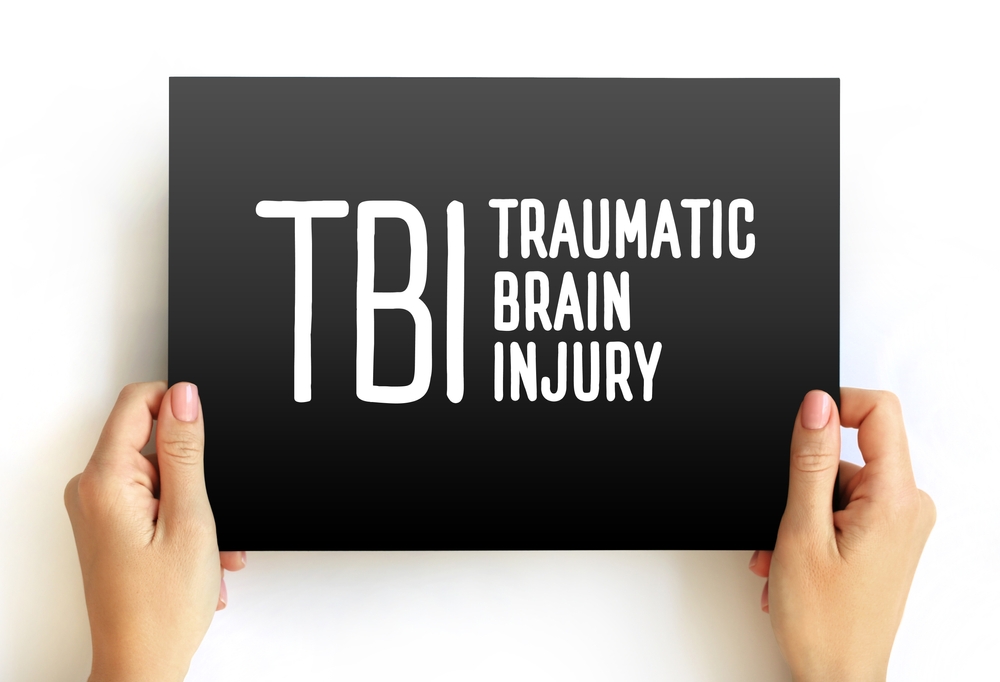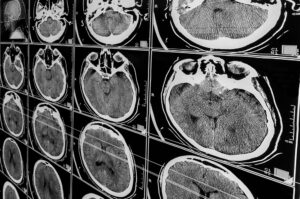Why You Should Choose Midwest Injury Lawyers for Your Joliet Brain Injury Claim
Choosing Midwest Injury Lawyers for your traumatic brain injury claim means selecting a firm with a deep commitment to justice and a personal approach to each case.
Our firm stands out for several compelling reasons:
- Trust and Transparency: Trust is paramount in any legal relationship. At Midwest Injury Lawyers, we build trust by prioritizing every client’s needs and providing honest, straightforward advice. We will ensure you understand every step of the legal process, allowing you to make informed decisions. Our approach is straightforward and practical while being compassionate.
- No Financial Burden: We understand the financial strain a traumatic brain injury can place on a person and their family. That’s why we work on a contingency basis. This means you won’t pay anything unless we win your case, removing the stress of upfront legal fees. Our policy allows individuals from all economic backgrounds to seek the justice they deserve.
- Experienced and Recognized Attorneys: Our founding partners, Chester “Chet” L. Cameron, Jr. and Samuel “Sam” R. Carl, bring decades of experience in personal injury law to the firm. Their success has earned them recognition nationwide among the top five percent of Joliet personal injury lawyers. This reputation is a testament to their skill and dedication to their clients.
- Proven Track Record: Our firm’s history of securing tens of millions of dollars for our clients speaks volumes. We will handle every aspect of your case, from the initial investigation to negotiations and even court representation, if necessary, to help you seek the maximum compensation available. Our track record proves our ability to deliver results.
- Personal Commitment: You are not just another case number at Midwest Injury Lawyers. Our Joliet TBI attorneys treat each client with respect and attention because we understand the deeply personal effects of a traumatic injury. We will stand up against at-fault parties and insurance companies to make your voice heard and protect your rights.
Compensation for TBI Claims
When you file an injury claim following a TBI, you can pursue compensation for the harm you have suffered due to your injury. This includes the immediate costs you incur, such as ER bills, as well as your long-term expenses and changes to your quality of life.
Here are some of the types of compensable losses you could include in your TBI claim:
- Medical Expenses: This includes all the costs of any medical care you need due to your TBI. It covers hospital stays, doctor’s visits, medications, surgeries, and any other treatments you receive because of your injury.
- Future Medical Costs: These are the medical expenses you will likely incur in the future due to your TBI. This could include ongoing therapy, future surgeries, rehabilitation, or any long-term treatments you require to recover.
- Income Losses: This refers to the money you lose because you can’t work due to your TBI. It includes salary or other income you would have earned if you hadn’t suffered the brain injury.
- Lost Earning Potential: This covers the loss of your ability to earn money in the future because of your TBI. If your injury affects your capacity to work the same job or to work at all, you can include this loss in your claim.
- Pain and Suffering: This is compensation for the physical pain and emotional suffering you experience due to the TBI. It acknowledges the discomfort, anxiety, depression, and other emotional effects of your injury.
- Lost Quality of Life: This compensation accounts for how your TBI has changed your ability to enjoy life. It includes loss of enjoyment in hobbies, inability to participate in certain activities, and changes in your lifestyle resulting from the injury.
Overview of Traumatic Brain Injuries
A traumatic brain injury (TBI) is a type of injury that happens when a sudden trauma damages the brain. This can occur when the head suddenly and violently hits an object or when an object pierces the skull and enters brain tissue.
TBIs can range from mild, causing a brief change in mental status or consciousness, to severe, resulting in extended unconsciousness or amnesia after the injury.
When someone suffers a TBI, the brain experiences a disruption in everyday functioning. This disruption can affect the brain’s cells and nerves. The force of impact can cause the brain to bounce or twist in the skull, possibly leading to chemical changes or damage in the brain.
TBIs can result in bleeding, bruising, torn tissues, and other physical damage to the brain that can result in long-term complications or death.
Traumatic Brain Injury Statistics
Traumatic brain injuries (TBIs) are a significant health concern in the United States, affecting millions and leading to numerous hospitalizations and deaths annually.
The following statistics highlight the prevalence and severity of this issue:
- Each year, around 1.7 million people in the U.S. suffer from TBIs.
- Of these, approximately 230,000 require hospitalization due to the severity of their injuries.
- About three percent of TBIs result in fatalities.
- More than 69,000 TBI-related deaths strike people in the U.S. every year, averaging about 190 deaths every day.
- Certain groups are more vulnerable to TBIs and their long-term effects. These include racial and ethnic minorities, military personnel and veterans, people experiencing homelessness, incarcerated individuals, survivors of intimate partner violence, and residents of rural areas.
- The most common causes of TBIs are falls, firearm-related injuries, motor vehicle crashes, and assaults.
- Nearly half of TBI-related hospitalizations are due to falls.
- Firearm-related suicides are the leading cause of TBI deaths nationally.
- Individuals 75 and older have the highest rates of TBI-related hospitalizations and deaths, accounting for 32 percent of TBI hospitalizations and 28 percent of TBI deaths.
- Men are significantly more likely to require hospitalization for and to die from TBIs than women, with nearly double the hospitalization rates and triple the death rates.
Types of TBIs
Traumatic brain injuries come in various forms, each with unique characteristics and potential health consequences. Below are some common examples of brain injuries (not all of which are traumatic brain injuries).
Concussions
Concussions result from blows or jolts to the head that disrupt brain function. Symptoms can include headaches, confusion, dizziness, ringing in the ears, nausea, and temporary loss of consciousness. Some people also experience memory loss, fatigue, or sleep disturbances. While most people recover fully from concussions, repeat concussions can lead to long-term neurological problems.
Contusions
Brain contusions are bruises on the brain tissue resulting from direct impacts, such as falls or car accidents. These injuries can lead to swelling and increased pressure inside the skull, potentially causing further damage.
Symptoms range from mild to severe and include confusion, drowsiness, and seizures. In severe cases, contusions might require surgical intervention to relieve pressure.
Diffuse Axonal Injuries
These injuries occur when the brain moves back and forth in the skull due to a severe rotational force, causing tears in connective brain tissues. This disrupts the brain’s regular chemical processes and can lead to swelling, causing additional damage. Symptoms include unconsciousness, persistent headaches, and seizures.
Coup-Contrecoup Injuries
Coup-contrecoup injuries involve the brain sustaining direct injury under the site of impact (coup) and the brain’s opposite side (contrecoup) due to the force of the injury.
These injuries cause contusions in both areas, often resulting from vehicle accidents or falls. Symptoms can include confusion, headaches, dizziness, and nausea, depending on the injury’s location and severity.
Hypoxic Brain Injuries
Hypoxic brain injuries happen when the brain receives insufficient oxygen, often due to medical emergencies like cardiac arrest or respiratory problems. This lack of oxygen can lead to cognitive and motor impairments, including memory loss, reduced executive functions, and physical coordination difficulties.
Anoxic Brain Injuries
These injuries occur when the brain gets no oxygen at all, leading to the rapid death of brain cells. Causes can include choking, drowning, or cardiac arrest. Survivors of anoxic brain injuries often face severe cognitive and physical issues, including memory loss, reduced problem-solving abilities, and motor dysfunction.
Penetrating Head Injuries
These injuries occur when an object, like a bullet or sharp fragment, pierces the skull and enters the brain tissue. They can cause severe localized damage, bleeding, infection, and increased intracranial pressure. The severity and effect of these injuries depend on the object’s trajectory and the brain areas it affects.
Second Impact Syndrome
This rare but dangerous condition occurs when someone sustains a second concussion before the first has fully healed, typically in rapid succession. This can compromise the brain’s ability to regulate blood flow and pressure, leading to rapid and severe swelling. Symptoms can progress rapidly from mild confusion to loss of consciousness and life-threatening complications.
Common Causes of TBIs
Traumatic brain injuries are a significant health concern and can result from a wide variety of incidents, ranging from everyday activities to more extreme situations.
Here are some common examples of the causes of TBIs:
- Car accidents
- Truck accidents
- Motorcycle accidents
- Bicycle accidents
- Pedestrian accidents
- Falls from heights
- Slips and trips
- Sports injuries
- Physical assaults
- Domestic violence
- Gunshot wounds
- Explosions in military combat
- Construction site accidents
- Falling objects
- Workplace accidents
- Playground accidents
- Swimming pool accidents
Filing an Insurance Claim After a Brain Injury
Filing an insurance claim after a TBI is often a complex and challenging process, mainly because insurance companies employ numerous tactics to minimize payouts.
For example, they might question the severity of your injury, arguing that it’s less serious than you claim. They might also delay the processing of your claim, hoping you’ll accept a lower settlement out of desperation or financial need.
Sometimes, insurance companies deny claims based on technicalities or minor errors in the paperwork. Another common tactic is offering a quick settlement that might seem tempting but is often much less than you deserve. This is where having a lawyer can make all the difference.
A TBI lawyer understands these tactics and knows how to counter them effectively. They can prepare your claim to accurately reflect the severity of your injury and how it has affected your life.
A lawyer will negotiate with the insurance company, fighting for a fair settlement covering your medical expenses, lost income, and other related costs.
What to Do if You Suffer a TBI
If you suffer a traumatic brain injury, you’ll want to take specific steps to protect your well-being and your legal rights.
First and foremost, follow your doctor’s treatment recommendations closely. Adhere to their advice. This might include taking prescribed medications, attending therapy sessions, or following specific rest or activity guidelines.
Next, start gathering evidence that relates to your injury. This might include medical records, photographs of the injury or accident scene, and witness statements if available. This evidence will be essential if you file an insurance claim or a lawsuit.
Finally, contact a knowledgeable Joliet TBI attorney. A lawyer can provide valuable guidance on how to proceed with your claim. They can get you the compensation you deserve for medical expenses, income losses, and more. Remember, time is often critical in these cases, so act promptly.
Contact a Joliet TBI Lawyer Now
Don’t hesitate to get the help you need after a traumatic brain injury. Reach out to the Joliet TBI attorneys at Midwest Injury Lawyers immediately at (815) 714-6131. We can review your case, address your concerns, and advise you on your next steps when you contact us for your free initial consultation.
Joliet Office
210 N Hammes Ave
Unit 205 C
Joliet, IL 60435
(815) 714-6131
A Word from our Work Injury Attorney
Receiving maximum compensation for workplace injuries requires knowledge of workers’ compensation law, as well as the ability to identify any negligent third parties who may share some responsibility for causing an injury. It is crucial to get advice from an attorney who understands how to obtain quick and sufficient compensation for a workplace injury.
– Chester L. Cameron

Request a Free Consultation
Tell our experienced team about your accident and/or injuries. One of our personal injury attorneys will contact you to schedule a free case evaluation. Remember: you won’t pay for anything unless we secure a compensation on your behalf.
Call (312) 786-5881 or send us a message online to get started.



